- Home
- Bill James
World War Two Will Not Take Place Page 8
World War Two Will Not Take Place Read online
Page 8
‘Almost never.’
‘Now and then?’
‘Yes, now and then.’
‘Special occasions!’
‘Yes, perhaps so. He had a new chair delivered not long ago, so, obviously, he must open the door and talk to the men. My wife saw this when coming back to the apartment one day. She thought it seemed an expensive chair – metal and wood, laminated.’
‘I expect he wants to be comfortable when he sits in there alone.’
‘I must go now. I’ll lose a quarter of an hour’s pay if I’m late,’ he said, buttoning his raincoat.
‘Night work?’
‘Oh, yes.’
‘The factory operates non-stop – twenty-four hours?’
‘Oh, yes.’
‘There are plenty of jobs, are there?’
‘Oh, yes, recently.’
Making mortar shells? U-boat fins? Dornier P59 bomber parts? Mount wanted to ask, but didn’t. Questions could become too insistent, too professional – or non-professional for a dwellings specialist. ‘When I refer to the evening perspective, I want to find what sound levels are like in the building now most people are at home, relaxed and playing their radios and gramophones and so on. This is quite important. Some people in Britain don’t like neighbours’ din. It’s an attitude they’ve taken from the upper classes, who live in manor houses away from the populace. I’ll stroll the corridors.’
‘You fear that if the plattenbauten have shifted, as your friend suggested, noise might be able to crawl through the gaps and attack?’
‘He was a worrier, wasn’t he?’
‘I won’t slam the door when I leave now in case the apartment block falls on you because the plattenbauten are unstable. Then you wouldn’t be able to go back to your country and say how wonderful the Splanemann-Siedlung apartments are, owing to your death.’
Mount climbed to the third floor. The corridor was empty. He walked pretty silently, he thought, to thirty-seven. His fourth key turned the lock. The corridor had remained clear. He went in and closed the door quietly behind him. That took a struggle. The training said you always left yourself a ready exit, especially when going on to unknown ground which might contain an enemy – or enemies. And, God, surely it must be a plural, if he was expected. But he could not let the door stand ajar. That would bring attention, because this door’s usual and notorious state was shut. He waited.
The training had taught him how to disarm someone when not armed himself, but not how to disarm several when not armed himself. He crouched a bit against the door. This seemed the best countermeasure he could manage if guns surrounded him in here. The training hadn’t taught him, either, what a corpse would smell like after a longish time, but he thought it would be fairly bad, and he detected nothing like that now. SB, ex-no-man’s-land, might have been able to tell him. There was a cigarette odour, but ingrained, not new. He stood still, bent against the door for a minute, sniffing the darkness, but also trying to sense whether in fact this place seemed to match thirty-four for layout. He heard what might be footsteps and the scrape of moved furniture. But he thought these sounds came from other apartments, not this one, perhaps because plattenbauten had shifted, leaving holes, or simply because this was an apartment block with the usual neighbourly noises when people lived on top of and alongside one another, jam-packed. If he had really been on an accommodation mission from Britain he would have made a note. He switched on his torch. He was in a small hallway, which gave on to a passage with doors leading off. That did square with thirty-four. All the doors were closed, so he could safely show light here. It did not reach a window. He thought the living room would be straight ahead. He’d try that first. He extinguished the torch and opened the door.
The curtains were not pulled across the windows. He knew that already, from viewing outside. A middling sized moon escaped the clouds once in a while and gave some light. And a bit of a glimmer came from street lamps a good way below. The room looked untidy, as if someone left in a big hurry, or as if a slam-bang search had happened, with no effort made to restore things. Three drawers in a sideboard had been pulled open and left like that. A crumpled shirt hung over the back of an armchair. Pages from several newspapers lay on the floor near one down-at-heel brown shoe and an empty beer bottle.
Mount did a full eye-inventory. Two armchairs: brown leatherette, not laminated wood and metal. Of course not: Toulmin and the girls had brought that one to Mount’s apartment. He saw a burly radiogram in what might be mahogany; a couple of straight backed wooden chairs, perhaps also mahogany; beige-brown fitted carpet, newish; three framed watercolours of rural and river scenes, which seemed to hang all right, no jutting over wall bulges; the sideboard of some light wood that Mount couldn’t place, out of tone with the mahogany. Some books and papers lay on it: he’d scan the books and papers shortly and look in all the sideboard drawers. Before that, he must get through the other rooms and see whether they contained anything or anybody, or any body, he needed to see. By now he felt certain thirty-seven was no ambush. He hadn’t been grabbed, clubbed or shot when at his most targetable – coming through the front door.
The big bedroom and kitchen seemed as disorderly as the living quarters, maybe worse. The bed had not been made, and clothes were strewn about. On a kitchen unit he saw what appeared to be the leavings of an interrupted breakfast – half a grapefruit, some fragments of bread, a quarter-full coffee mug. A fork lay close to the mug in a small pool of gravy, perhaps from the previous night’s meal. But the single bedroom, when he opened that door, was neat and spruce, a kind of ladylike touch, as good as anywhere in thirty-four, and they’d been forewarned to get tidy. If the apartment had been searched, wouldn’t they have done this room as well? The idea strengthened in him that Toulmin had gone somewhere urgently and fast, not having time to spruce up the rooms he actually used, promising himself it could be put to rights when he returned. But the other explanation for the showpiece small guest bedroom might be that searchers had found whatever they were after elsewhere in the apartment and didn’t need to turn that one over. The open drawers in the sideboard looked like evidence of a failed search, but might not be: possibly they’d taken something they’d been hunting from one of them. What, though?
He went back into the living room. To examine the papers and books he would have to use his torch. Had a good education made him regard books and papers as incomparably important: all that devoted labouring over Greek and Latin texts had slanted his mind? At any rate, he did regard them as important. But no matter how thin the torch’s ray, it might be noticeable from outside: a sudden stab of white after long-time blackness. He switched on, though. He kept the torch close and stood with his body stopping most of the light from reaching a window. He put the beam momentarily on the papers. They seemed to be mostly family letters, including a wedding invitation. But he saw, also, the receipt for a birch wood and metal laminated armchair. That troubled him, though he couldn’t fathom why. It told no real tale. He put the receipt in his pocket. Never mind the reason.
He wanted a better look at the papers and wondered whether he could draw the curtains briefly. He might then even risk switching on the living room’s overhead bulb. A reasonable gamble? He came to think so. The curtains were heavy and almost reached the floor. They would let little or no light through. He put the torch out, moved to the side of the window and paused. Closing the curtains would involve standing behind each in turn, concealed from outside, and tugging it to the centre. He must act quickly, because a half curtained window would be conspicuous. Right. And he was just about to start when he instinctively glanced down around the edge of this curtain to check whether anyone outside watched.
On the pavement in the street leading to the apartment block, he saw three men walking at a good lick, perhaps making for this building. It was shadowy despite the overhead lamps, but he thought one of the three might be Toulmin. Although he couldn’t make out faces at that distance, the physical shape of this man and a rather
jerky way of walking suggested Toulmin. Yes, ‘suggested’ would be the right, imprecise word. The man walked between the other two. He and one of the pair carried a suitcase. Mount couldn’t prolong this view of them. He had to get out of sight fast. He did nothing with the curtain and, stepping backwards, retreated from the window into the darkness of the room. He stood still briefly, trying to work out the meaning of what he’d seen. At least Toulmin – if it was Toulmin – could obviously walk all right, in that special, recognizable, undamaged style.
He had on a fur-covered, Russian-style winter hat, which obscured some of his face. But Mount came to feel half sure it was Toulmin – and felt fully sure he must get out of thirty-seven in case those three arrived. He reckoned he had about four minutes: two for them to reach the apartment block, and two on the stairs and along the corridor. He hadn’t noticed any of them look up at the window. Assume, then, it must be Toulmin. The two men had both stayed half a yard behind him. How to read this? Were they escorts, jailers, or flunkeys? That could be important. Well, of course it could be important, bloody important. If he was a prisoner, a captive with captors, being brought back here for some reason, could Mount leave him to it? That abominable prospect of scampering retreat – of ‘save-yourself-do-dear-Marcus’ – troubled him again. Poltroonery? Panic? Appalling selfishness? Professionalism?
But the training would undoubtedly say ‘bail out and bail out NOW’ for this kind of situation. It was one of those ‘greater good’ moments. Here, that would clearly mean safeguarding the Berlin operation’s secrecy and effectiveness. This put considerations for the welfare, even the life, of an agent like Toulmin, more or less nowhere. In any secret project there might come a crisis where someone, or more than one, was dispensable. Meticulously, unemotionally, anti-emotionally, the training had spent three days carefully itemizing emergencies where flinging a former mate and informant into the acid bath would be not only OK, but a bit of a triumph. Compensation for the family should be properly seen to, of course.
Still standing in the centre of the room, Mount went on trying to get his thoughts in order. Why would they bring Toulmin back here, if that’s what they were at? Perhaps they wanted something from one of the rooms, something he could point them to. The papers? As Mount had suspected, maybe there had been no search of thirty-seven. Had they caught Toulmin trying to escape? Hence the suitcases and the poor state of the apartment, left in a rush. Had he sensed, or even been tipped off, that they meant to move against him? Toulmin might not be the only whisperer in government employ, nor the only active anti-Hitlerite. For instance, SB had a Most Secret dossier on two brothers called Kordt, well up in the state hierarchy, yet possibly plotting against the regime and Adolf. One of those or someone like them might have got a word out to Toulmin, the word being: ‘Vanish!’ Wherever the warning originated, did Toulmin make a run at once? And had they anticipated he would and snared him at the airport or railway station?
The papers, again. He hadn’t looked at them properly. Might there be something that would incriminate Toulmin? Could they lead to Mount? Should he sweep them all up, jam them into his pockets like the chair receipt, and disappear while he had time? But was this another symptom of his college-boy obsession with ink and papers? Possibly it came from even further back – those regular espionage tales in the lads’ magazines, Hotspur and Skipper, about the theft of what were always called ‘vital secret documents’, threatening the safety of the realm. And then there was Richard Hannay’s search for the crucial notebook in Buchan’s The Thirty-Nine Steps. Fiction. And fiction putting a strain on credibility. Would an agent in continuous danger like Toulmin write sensitive stuff down and leave it around on a sideboard? Was he a suicidal idiot? Forget the papers. Try another tack.
Suppose Mount didn’t, in fact, give in to wise, standard-issue funk – took no undeniably prudent flit. Instead, if he went to meet them in the corridor now, or on the stairs, would Toulmin be able to indicate somehow whether he was OK – a sly wink, a fleeting half-grin, a frown? After all, they would probably encounter other people in the apartment block as they made for thirty-seven. Mount could be simply a resident, entitled to some formal greeting, as far as those two were concerned. Naturally, Mount wouldn’t speak or show special recognition, and neither should Toulmin. But he’d realize he was not forsaken. Foreigners sometimes referred to Britain as ‘perfidious Albion’, meaning faithless. He wondered whether he could prove this false, at least about the Mount subdivision of Albion. Honour still had a place, hadn’t it? There’d been no time spent on honour in training, though.
True, the men with Toulmin might be especially alert. To locate and lure any of his contacts could be one reason they’d returned to thirty-seven. Everyone around the place would be regarded as a possible secret pal of Toulmin, his brother spy. And, of course, if those two forced a conversation – didn’t allow the encounter to stay silent, as Mount planned – they would at once know him to be British. His German was good, but admittedly not mistakable for German German: Wellington school had insisted he take a ‘living language’, as well as the classics, and there’d been an excellent German crash course in the Section. But, although the Berlin assignment would help him improve fast, he knew he came nowhere near bilingual yet.
In any case, what if Toulmin somehow signalled he was not OK, deeply unOK? Mount wouldn’t be able to do much about it, except grieve: those two probably armed, and he with just twirls and a torch and some unarmed combat skills. So, then, do a bunk while doing a bunk remained possible? Mount carefully piled up these reasons to justify his own quick flight now – and felt sickened by them. Could he really abandon Toulmin? This was an agent who had taken huge risks for Mount, and, if for Mount, for SB, for the Section, for GB, for the empire. Reward? Write him off. Disgusting. Yes, that ‘greater good’ gloss was merely ‘the end justifies the means’ in poor disguise: chuck morality and loyalty for the sake of some possible, undefined advantage. Stephen Bilson might say he believed in the greater good, but Mount would bet that if he and SB’s special agent in Berlin, Ahasuerus Fromanteel, so-called, were in this kind of situation, SB would not abandon him. Although Mount had no gun, a sudden physical corridor attack on those two by him – the surprise of it, the shock of it – might enable Toulmin to bolt, and perhaps Mount could somehow hinder, obstruct, any pursuit, or handgun volleys, from those two attendants.
He hung on in the apartment as if semi-paralysed, while trying to deal with these doubts, then decided in a spasm that they were sentimental, goofy and – worst of all – defeatist. When he joined the Service he deliberately picked a career where the greater good was the only good, if things went rough. It would be paltry to rat on that now. He had just proposed to himself two ridiculously probable killings in a corridor of this Splanemann-Siedlung development – Toulmin’s and his own. They’d be inexplicable back in London; kaput for the operation. SB would be stunned, not just by the absurd, wanton deaths, but because Mount had flouted the most basic of rules and gone to Toulmin’s home, endangering Toulmin and himself, fatally endangering Toulmin and himself, and blazoning the Section’s stealthy purpose and preposterous incompetence. No, it mustn’t be like that.
Pieties and quaint honour duly strangled, Mount edged to the side of the window again. The three men were not in sight outside now. They must have entered the building and be on their way upstairs. Get out, get out, before they reached the third floor corridor. NOW. He left thirty-seven and turned towards the other end of the building. In his saunterings earlier he had seen a secondary set of stairs and an entrance there. To residents he passed in the corridor and on one of the landings he gave a small but bonny smile and nod: tokens of solid, Splanemann-Siedlung, communal feeling.
Surrounding the apartment block was a stretch of public space, part grassed and with some trees. He got behind a holly tree and watched the windows of thirty-seven. From here he could see virtually the whole frontage of the block. After a few minutes, lights came on in the apartment. The
n Toulmin appeared and drew the curtains of the living room. It was unmistakably Toulmin and, in any case, this association with the apartment decided identity. To Mount, he looked relaxed and still thoroughly undamaged. He seemed to have a lit cigarette sticking up between the fingers of his right hand, away from the curtain material. His head and face were half turned back into the room. He might be chatting to people behind him. He pulled at the curtains with what looked like a sort of leisurely satisfaction, as though delighted to be back in the cosiness of his own place, shitheap or not. A faint line of light was visible above the living-room drawn curtains.
Mount stayed on behind the holly. More or less automatically he’d done a description in his head of the two men with Toulmin, and he memorized it: a tic from training, a ritual, but the men might matter. He went over these impressions now. He’d judge both to be less than thirty and physically powerful and fit, though not in the loose-limbed way male ballet dancers might be powerful and fit. The one to Toulmin’s right was about 5′ 10″, wide-shouldered, wide-chested, dark hair cut close. He wore a long trench coat, no hat. What Mount took to be a small cigar had glowed between his lips. The other man would be four or five inches taller; leaner, but not gangling. His hair appeared dark, also, though Mount couldn’t make out much of it because he had on a cheese-cutter cap. His overcoat was navy or black and looked like good material, very well cut. He wore the hat slightly to one side – a sort of attempted raciness. It was this taller man who, like Toulmin, carried a suitcase. Mount could make out nothing much of the faces.
After about ten minutes Mount saw these two leave the apartment block. The man with the cap no longer carried a suitcase. Mount felt bludgeoned by choices again. He could follow them and try to discover who they were, where they came from. But he had never been good at tailing, nor at counter-tailing, come to that. ‘Too self-centred,’ they’d said at training. The two men might have a car, though, parked somewhere away from notice. He couldn’t track that. It would be much simpler, easier and quicker to get Toulmin to tell him about them. But this supposed it to be Toulmin in there, alive, and still working for Mount, and, if for Mount, for SB, for the Section, for GB and the empire.

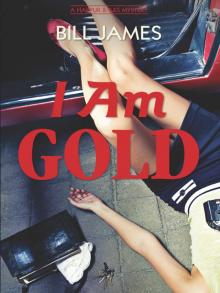 I Am Gold
I Am Gold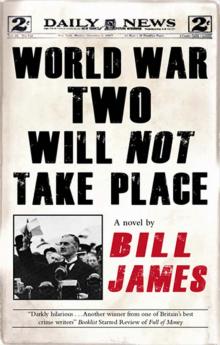 World War Two Will Not Take Place
World War Two Will Not Take Place Pix (Volume Book 24) (Harpur & Iles Mysteries)
Pix (Volume Book 24) (Harpur & Iles Mysteries)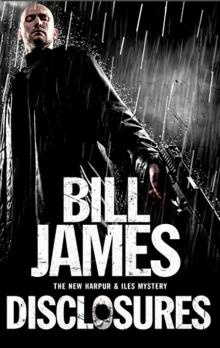 Disclosures
Disclosures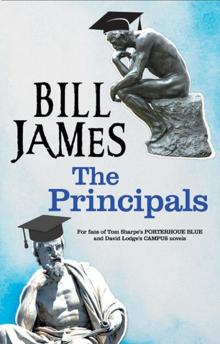 The Principals
The Principals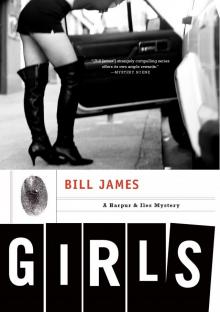 Girls
Girls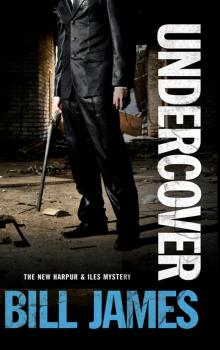 Undercover
Undercover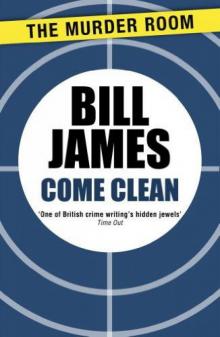 Come Clean (1989)
Come Clean (1989)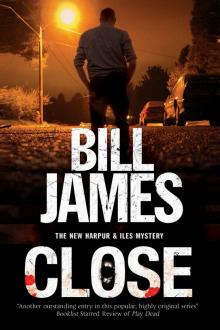 Close
Close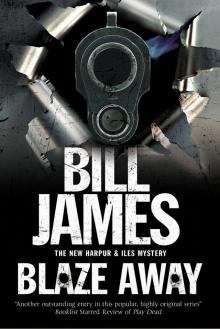 Blaze Away
Blaze Away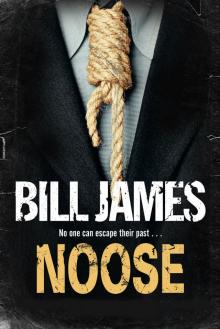 Noose
Noose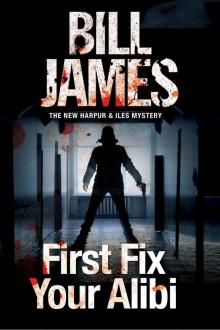 First Fix Your Alibi
First Fix Your Alibi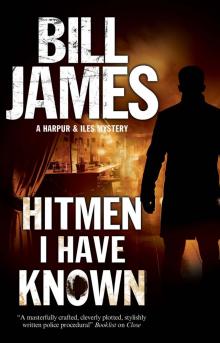 Hitmen I Have Known
Hitmen I Have Known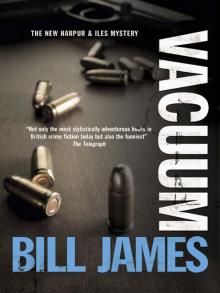 Vacuum
Vacuum Play Dead
Play Dead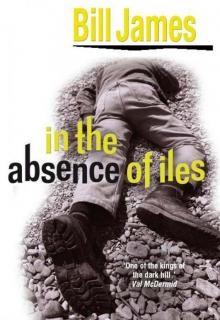 In the Absence of Iles
In the Absence of Iles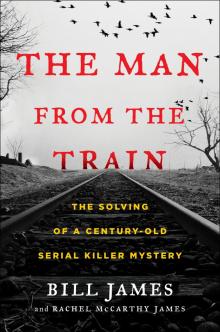 The Man from the Train
The Man from the Train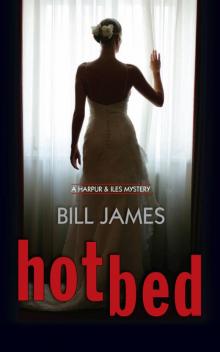 Hotbed
Hotbed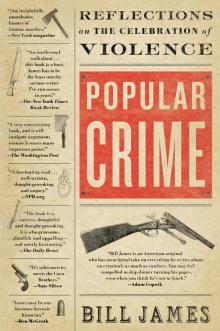 Popular Crime
Popular Crime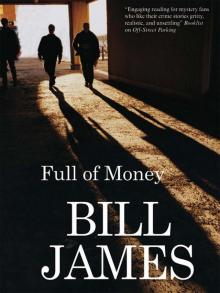 Full of Money
Full of Money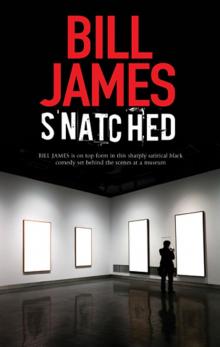 Snatched
Snatched